Zika-fear pregnant woman faces deportation to Brazil
- Published

Deiseane Santiago and Simon Ellis met three-and-a-half years ago online and got engaged six weeks ago
A pregnant Brazilian woman advised not to return to the country amid Zika virus fears has been told she faces deportation from the UK "within days".
Deiseane Santiago got pregnant in January while visiting her fiancé in Leicestershire on a five-month visa.
Supporting an application to extend her visa, her GP cited Public Health England advice, external over pregnant women travelling to Zika hotspots.
But the Home Office said the advice only applied to British nationals.
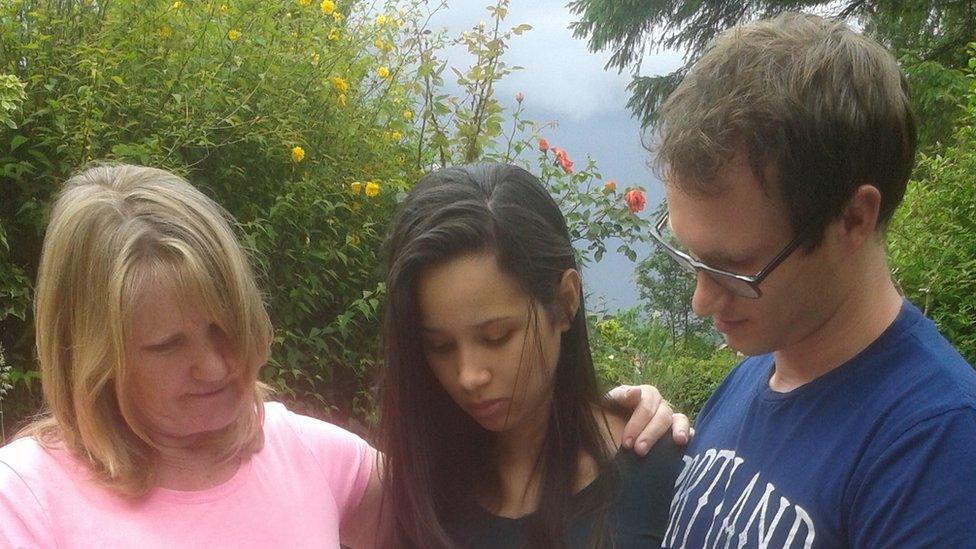
Miss Santiago (middle) and Mr Ellis (right) - pictured with Mr Ellis's mother - intend to settle in Brazil
Miss Santiago, 22, from São Paulo, met Simon Ellis, from Leicestershire, online three-and-a-half years ago.
She travelled to Kegworth to visit him in November and the couple got engaged about six weeks ago.
Former business student Miss Santiago has suffered hyperemesis, external during the pregnancy, he said.
The couple changed Miss Santiago's return flight to November - after the baby's due date - and applied to have her visa extended until then.
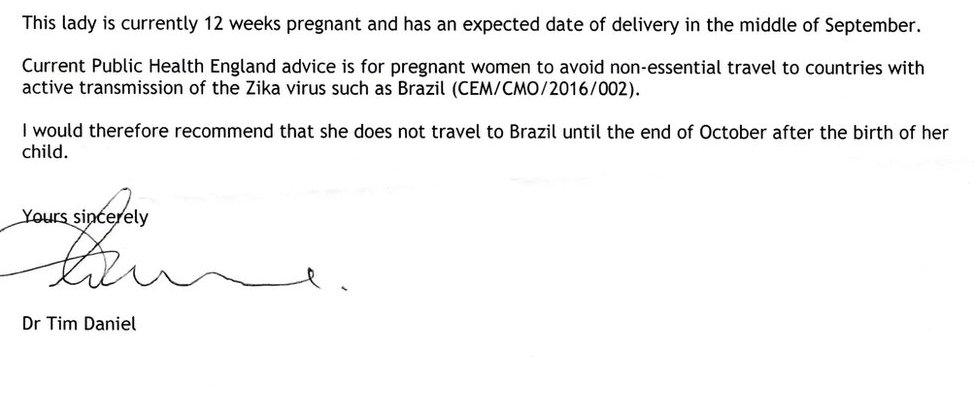
A doctor at the local surgery in Kegworth had advised against Miss Santiago travelling to Brazil
But on Monday, Miss Santiago - now 25 weeks pregnant - was told her application was refused, and that she could be arrested and deported within days.
A letter from the Home Office acknowledged the GP's advice that pregnant women should avoid travel to countries "with active transmission of the Zika virus", but stated that advice "is in respect of British nationals travelling to affected countries".
It warned: "You will not be removed for the first five working days after you receive this notice. Following the end of this period, and for up to three months from the date of this notice, you may be removed without further notice."
Mr Ellis, who intends to appeal against the refusal, called the decision "racist and discriminatory".

Zika virus: What you need to know
Deaths are rare and only one-in-five people infected is thought to develop symptoms which include conjunctivitis (red, sore eyes), headaches, joint pain and rashes
There is no vaccine or drug treatment so patients are advised to rest and drink plenty of fluids
The infection is suspected of leading to thousands of babies with underdeveloped brains
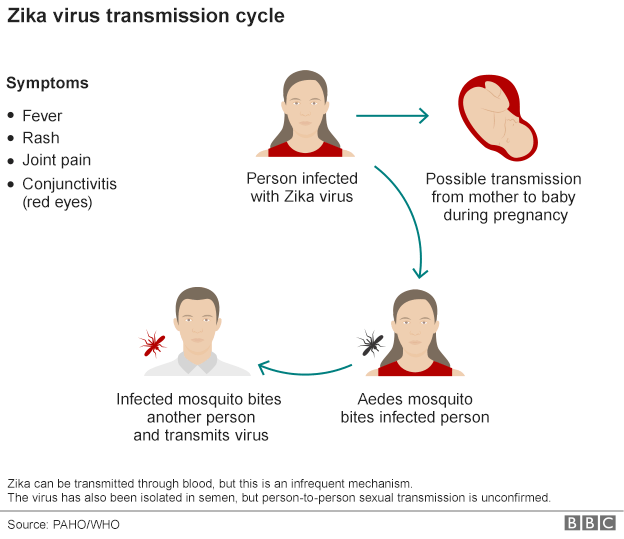

"It doesn't say British pregnant women, it says women," he said. "So for them to say it's for British women...why aren't they putting that in their advice?
"That annoyed me. In theory, that's being racist."
The Home Office has not yet commented.
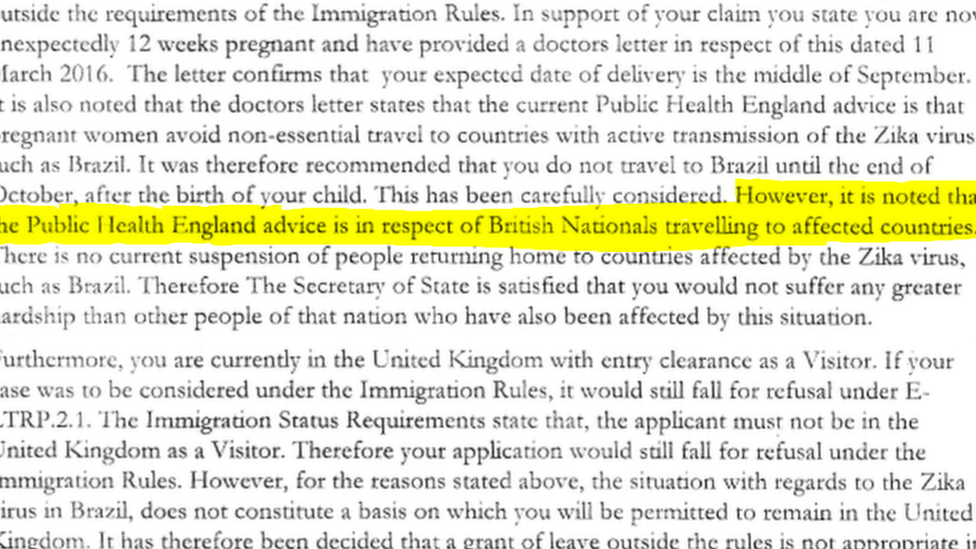
The Home Office said Public Health England advice "is in respect of British nationals"
- Published31 August 2016
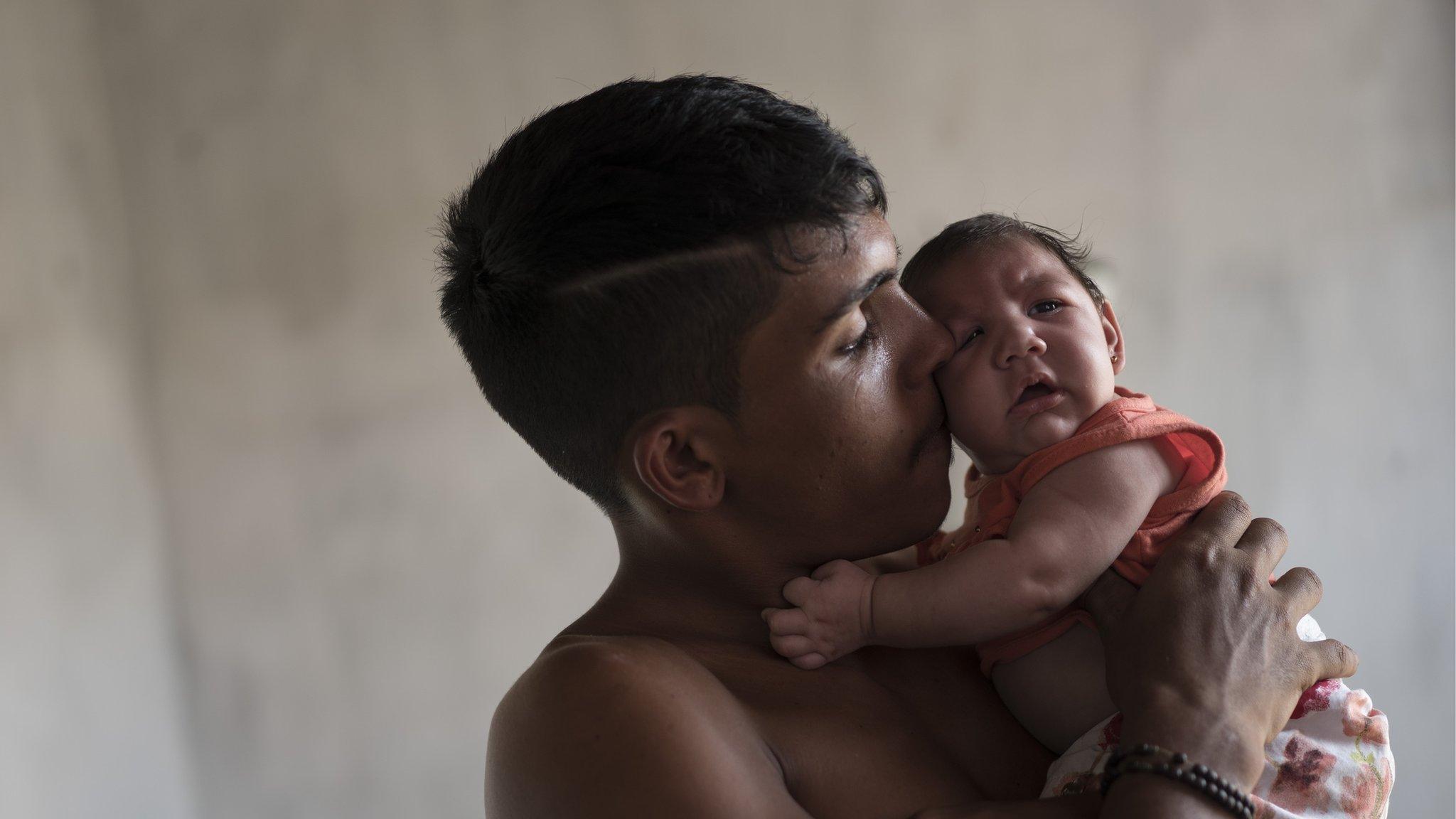
- Published5 February 2016
